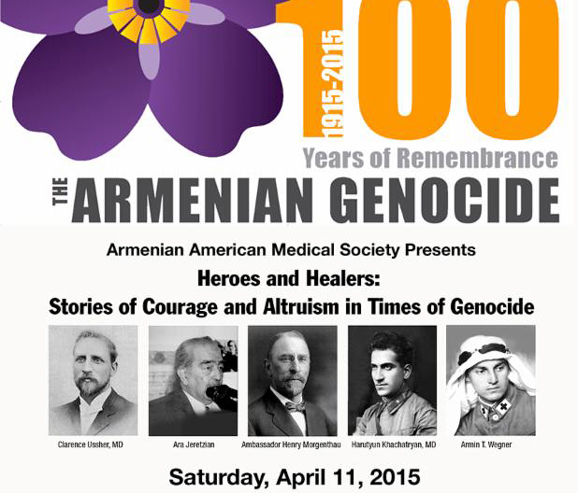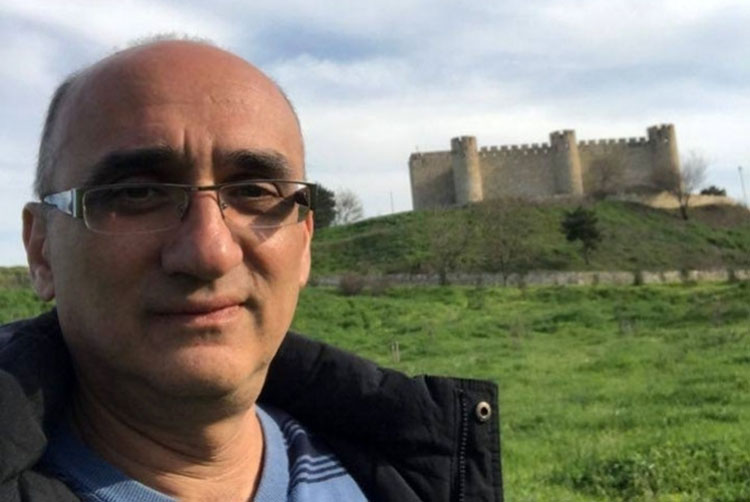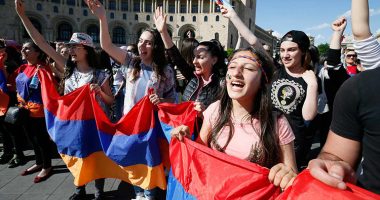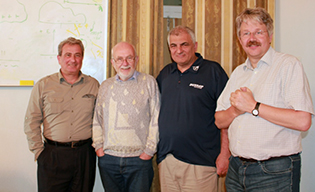By Taleen Babayan
Dr. Donna-Lee Frieze delivered a lecture titled “Raphael Lemkin: The Armenian Genocide and the Autobiography of the Insistent Prophet” at Columbia University’s Butler Library on Wednesday evening, October 2 at an event hosted by the Armenian Center at Columbia University.
A Prins Senior Fellow at the Centre for Jewish History and a NYC Visiting Fellow at the Alfred Deakin Research Institute in Melbourne, Australia, Dr. Frieze spent the last four years editing Lemkin’s unfinished autobiography and papers, which were housed for decades at the New York Public Library.
Highlighting the significance of the publication of Lemkin’s autobiography, Dr. Peter Balakian, who is the Visiting Ordjanian Professor in the Department of Middle East, South Asian and African Studies at Columbia, said Dr. Frieze “rescued and recovered one of the most important books in history on human rights.”
“This is a remarkable memoir that gives shape and scope to Lemkin’s own lifetime efforts to make genocide a crime in international law,” said Balakian.
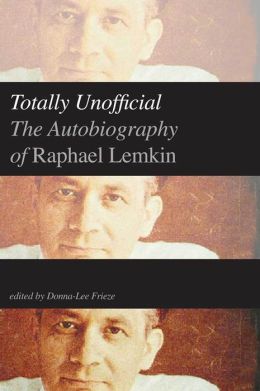

Touching upon the description of Lemkin’s childhood in the initial chapters of “Totally Unofficial,” Dr. Frieze contextualized his early life as a Polish Jew who was homeschooled by a highly intelligent mother. He describes in detail a childhood full of poetry, music and literature, which exposed him to cultures beyond his own at a young age.
”He’s writing about a vanished world, in every sense,” said Dr. Frieze, who noted that everyone in his family except his brother was lost to genocide as victims of the Holocaust. “Lemkin reignites this loss of language, land, and culture and this memory of wholeness is perhaps the genocide survivor’s key to living.”
His first exposure to genocide, however, occurred when he read about the Armenian Genocide and the subsequent trial of Soghoman Tehlirian, who was arrested for assassinating Talat Pasha, the architect of the Armenian Genocide, as an act of revenge. Lemkin was shocked that Tehlirian was even on trial and reflected, “Why is a man punished when he kills another man? Why is the killing of a million a lesser crime than the killing of a single individual?” This event was a turning point in Lemkin’s life as he changed his course of study from linguistics to law.
“It was the intended destruction of Armenians that triggered Lemkin’s interest,” said Dr. Frieze.
As a prominent lawyer and prosecutor in Warsaw, Lemkin became an internationally displaced refugee during the Second World War, which further fueled his tireless efforts towards the prevention of genocide.
“I only lived really when I was fighting for an ideal,” writes Lemkin in his autobiography. “I will devote the rest of my life to outlawing the destruction of people.”
Arriving in the United States in 1941, Lemkin became a faculty member at Duke University and spent the remaining years of his life to ensuring the passage of the United Nations Convention against Genocide. He used the Armenian Genocide as an example to appeal to the public’s moral consciousness.
“The Armenian Genocide deeply influenced his thoughts on genocide, not as mass murder but as sinister panorama of destruction that was intended, specific and planned,” said Dr. Frieze.
Lemkin’s efforts, however, were continuously met with opposition and Frieze noted that Lemkin was known as naïve, a fanatic and humorless. “But ‘Totally Unofficial’ shows an extremely shrewd lawyer, three steps ahead of his enemies, as he called them.”
“Lemkin was a prophet of sorts,” said Dr. Frieze. “He knew the Genocide Convention would not prevent genocide and that it would continue. Instead, he saw it as a rallying point.”
At the age of 59, Lemkin passed away of a heart attack in New York and his autobiography was left unfinished until Dr. Frieze tackled the challenge of weaving together Lemkin’s manuscript.
“By bringing Raphael Lemkin’s autobiography to print, Dr. Frieze restores Lemkin to his rightful place in the pantheon of human rights champions,” said Mark Momjian, Esq., chairman of the Armenian Center at Columbia University. “The Armenian Center is acutely aware of Lemkin’s research into the Armenian Genocide, as well as the critical importance it played in his effort to get the United Nations to pass the Genocide Convention.”
“Frieze’s lecture on Lemkin and the Armenian Genocide is one of the most important new perspectives on the Armenian genocide in recent years,” said Balakian. “It offers scholars and all others, especially, perhaps the Turkish nationalists, a deeper understanding of why the Armenian event became a central, if not the central, event in Lemkin’s thinking about what he would come to call genocide.”



